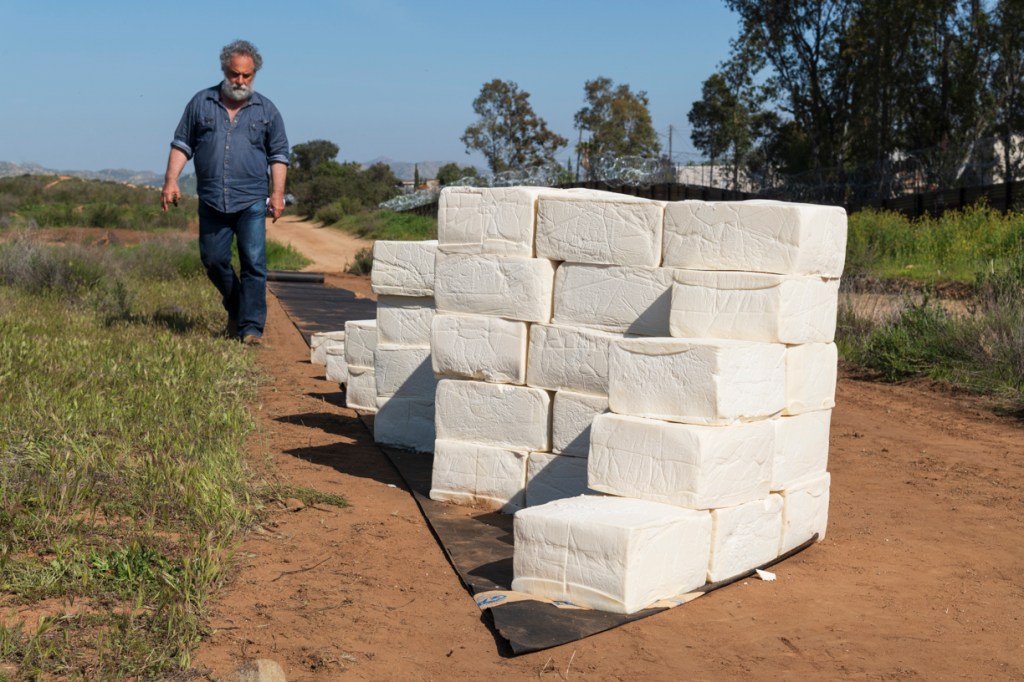A version of this article originally appeared on MUNCHIES Switzerland.
Behold, the Cheebab. The world’s first kebab made of rotisserie cheese is a revelation for vegetarians who are as tired of falafel as everyone is of hearing “Last Christmas” playing on the speakers in every supermarket during the month of December. The slow-turning cheese spit—from which crispy cheesy bits get shaved to make the kebab sandwich of vegetarians’ dreams—comes from Switzerland, because of course it does.
Videos by VICE
As far as taste goes, the Cheebab has a combination of cheddar, halloumi, and Raclette vibes. It’s well-seasoned and strong, but the cheesiness isn’t overwhelming. It lets the other kebab components—like onions, red cabbage, and hot sauce—shine, and the halloumi-like texture is basically perfect. “And it’s well-salted, which is important for a kebab,” says MUNCHIES CH social editor Laura Tenchio after a test bite. “As a vegetarian, I’m especially always craving something salty.”
MUNCHIES met with the inventor of the Cheebab, Roland Rüegg of local Zurich dairy farm Natürli, at a tasting in Zurich last month.
MUNCHIES: How did you come up with the cheese kebab?
Roland Rüegg: I had a hunch that kebab shops could offer something with cheese, and we also like to work on new recipes in production. From the initial vision to the first usable result, it took us about a year between the recipe and the production. The Cheebab has been around since May of 2018 and we’ve been overrun with requests ever since.
And it’s because of one such request that the Cheebab is now available in Germany.
Exactly, at Basak Kebab in Freiburg. We’re also talking to a location in Munich. Here in Switzerland, there are currently three locations that feature the Cheebab on their menus: the So Chill near the main train station in Zurich; the Babo Take Away at Pfäffikon ZH in Bauma (but only on Mondays); and the Gossau Kebab House in the Zurich region every Tuesday and Sunday. We also want it to be featured at food festivals in the German-speaking area this summer.
Have there been any inquiries from Austria?
One, but we couldn’t really take it seriously. The guy wanted us to mass-produce the kebab, which isn’t our style.
So you’re not trying to become rich off the Cheebab?
That’s not our [primary] motivation, no. We’re a small dairy farm that wants to make good products from the region for the region. To disrupt the international milk market isn’t our plan. We don’t have the capacity for that. We prefer to aim for high quality, and that does cost money. It means the price for the consumer is a bit higher in the end, but that’s the risk we take. In return, we can pay our local dairy farmers fairly and ensure that our cows eat only the best food—which in turn makes the milk for the Cheebab all the more delicious.
Do you think the cheese kebab should displace the traditional meat skewer?
Under no circumstances, no. It should just be an alternative for vegetarians. Which is why we’ve also made sure that the lab used for our cheese production is vegetarian-friendly.
The cheese on the rotisserie doesn’t melt immediately. How did you manage that?
That was the biggest challenge, and that’s why it’s our secret—at least until someone else finds out. [Laughs.]




